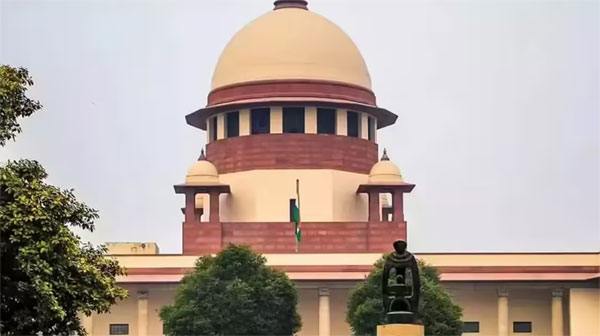Daijiworld Media Network - New Delhi
New Delhi, Nov 20: The Supreme Court on Thursday held that the actions of governors and the President in granting, withholding, or reserving assent to bills cannot be subjected to judicial review, reaffirming a strict separation of powers between the judiciary and the executive.
A five-judge Constitution Bench led by Chief Justice B. R. Gavai delivered the ruling while responding to a Presidential reference seeking clarity on whether timelines should be imposed for granting assent under Articles 200 and 201 of the Constitution.
“We find no reason to deviate from the binding decisions of this court… the discharge of the Governor’s or President’s functions under Articles 200 and 201 is not justiciable,” the bench held, effectively overturning a two-judge bench ruling in the Tamil Nadu case which had suggested that gubernatorial actions could be challenged in court.

The court stressed that judicial review applies only after a bill becomes law, not at the stage when assent is pending. Reviewing the text of a bill before it becomes law, the bench observed, would be “unheard of and unfathomable” in Indian constitutional practice.
Under Article 200, a governor may assent to a bill, withhold assent, return it for reconsideration, or reserve it for the President. Under Article 201, the President may assent to or withhold assent from a bill reserved by the governor.
The bench noted that previous larger-bench rulings consistently held that the correctness or merits of presidential assent lies outside judicial scrutiny. It described the governor’s role not as issuing a final executive order, but as initiating a “dialogic process”—a constitutional consultation mechanism that includes returning bills or reserving them for presidential consideration.
This process, the court said, is advisory, deliberative, and mediative—part of the Constitution’s checks and balances—and therefore not an adjudicatory function that courts can review.
The bench rejected the Tamil Nadu judgment’s implication that all three options—assent, return, or reservation—could be challenged, calling the reasoning illogical. If any one option is made reviewable, the court said, then even the grant of assent would become open to litigation, thereby creating a new avenue to contest legislation before it is enacted.
Such a scenario would require courts to examine the bill itself, prior to its becoming law—an outcome the bench said would undermine the constitutional scheme.
The ruling reinforces that the judiciary may review laws only after they come into force, not the internal constitutional processes that precede their enactment.